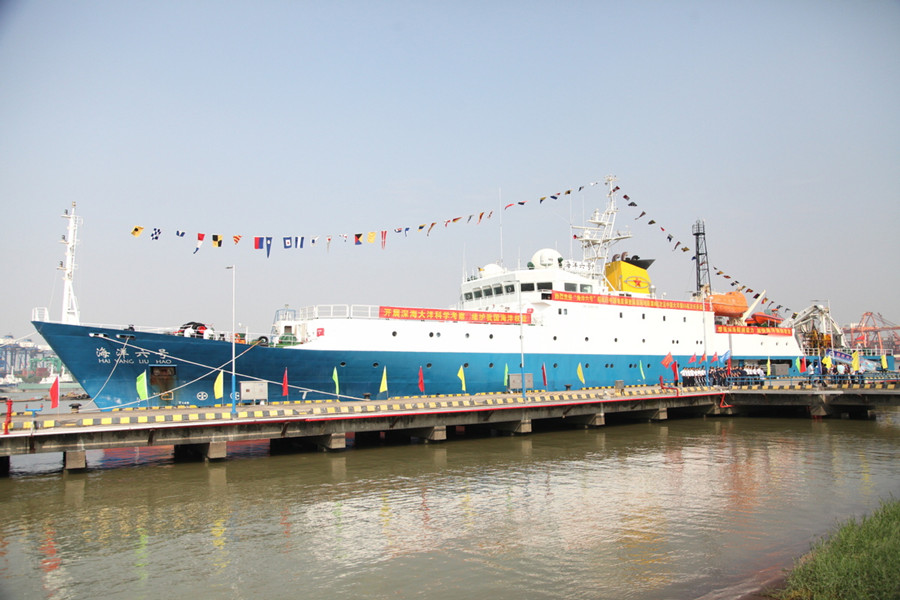China to up its deep-sea mining efforts

Chinese scientific research ship Haiyang 6 returns to Guangzhou, Guangdong province, after completing its deep sea exploration on Oct 23, 2019. [Photo/Xinhua]
China will pay more attention to the research and development of techniques and equipment used for deep-sea mining, according to a senior researcher in the country's shipbuilding industry.
"Deep-sea mining has become a new frontier of international competition on science, technology, resources and industries, because there are a lot of polymetallic nodules on ocean floors that contain rich concentrations of nickel, copper, manganese and cobalt that are essential to the renewable energy industry," said Ye Cong, deputy director of the China Ship Scientific Research Center in Jiangsu province's Wuxi.
"A large proportion of the metals I mentioned, which are extensively used at Chinese factories, needs to be imported. Mining them from seabed will help us reduce the heavy reliance on foreign suppliers," said Ye, who is a member of the 14th National Committee of the Chinese People's Political Consultative Conference.
Internationally, some Western nations have owned key technologies and the capability of manufacturing major hardware required in deep-sea mining and at least one company has launched experimental commercial mining operations expected to retrieve thousands of metric tons of ores each day.
However, China lags behind in terms of knowledge, technology and hardware, which highlights the importance of government attention and investment.
"We are facing several difficulties and challenges. First, it is hard to bring the ores from a depth of several thousands of meters. We need a reliable, powerful system consisting of pumps and tubes that can bring the mixture of seawater and extracted ores to ships" he explained.
"Second, we must thoroughly study the possible impact on deep-sea ecosystems and make sure that our solution can protect the marine environment and biodiversity. Also we need to figure out an economical, sustainable approach to mine from ocean floors otherwise we will not be able to afford it."
Ye's center is a subsidiary of the State-owned conglomerate China State Shipbuilding Corp and is known for its deep-sea submersibles like the Jiaolong, or Sea Dragon, and Shenhai Yongshi, or Deep-Sea Warrior.
According to him, previous scientific dives by the Jiaolong and Shenhai Yongshi have enabled researchers to carry out some preparatory work for deep-sea mining.
Hu Zhen, a senior researcher at the Wuxi center and also a 14th CPPCC National Committee member, said that exploration and development of oceans have become a significant topic of science and technology, and are closely related to safeguarding a nation's marine interests and its international status.
He urged the government to speed up its review and approval procedures for major deep-sea hardware's research and development and also accelerate the implementation of the deep-sea station project.
Ye and Hu were speaking on the sidelines of the first session of the 14th CPPCC National Committee, which closed in Beijing on Saturday.
Copyright © The National Committee of the Chinese People's Political Consultative Conference.
All rights reserved. Presented by China Daily.
京ICP备08100501号-1

